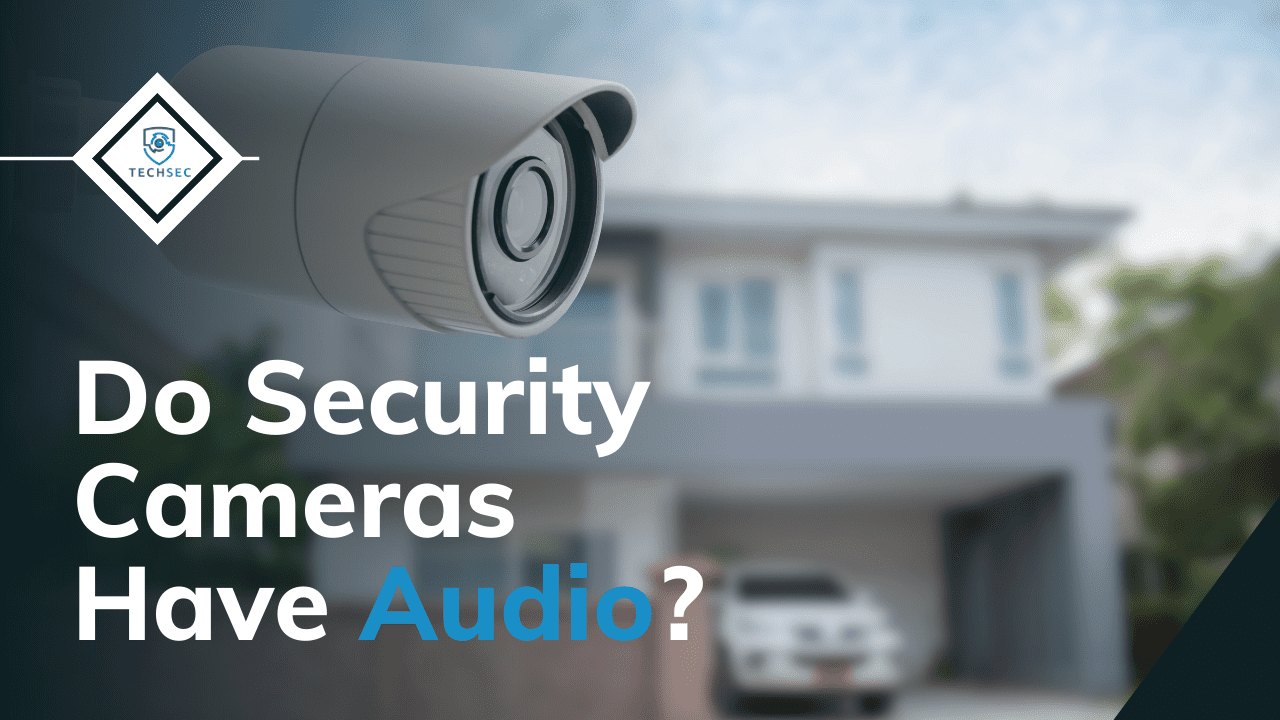Whenever you spot a camera in a shop or mall, or any place, your mind may start wondering, do they record sound as well. Unquestionably, the answer is yes. CCTV cameras with built-in microphones enable you to record video along with the audio.
Some of the CCTV cameras supporting audio do not have a built-in microphone but enable you to add an external microphone to record sound, for example, the Reolink RLC-423.
This feature of CCTV cameras delivers you an unmatched benefit like you can listen to the voice of your pets or child from afar place without having to be present in person.
Different Ways in Which CCTV Camera Record
Usually, two kinds of cameras are used: - IP CCTV and Analog CCTV cameras.
IP CCTV: An IP camera is a digital video camera in which microphones are directly built into the camera.
Though they use an analog signal to carry out transmission between the microphone and the Internet Protocol (IP) camera, it becomes digitalized as soon as it hits the IP camera level. Then the camera transmits a digital signal to the Network Video Recorder for instant playback.
You can install several microphones on an IP CCTV system based on the count of video channels on the Network Video Recorder. It also depends on the fact that does your camera has audio input or not. If yes, then count the number of channels supported by NVR, and you can fit an equal number of microphones on it (i.e., 1/ camera and channel)
Analog CCTV: In an Analog CCTV system, the audio doesn’t get digitalized first; in fact, audio is directly transmitted to DVR, which receives an analog signal transmission then digitalized by the DVR.
Like IP CCTV’s, the number of supported microphones in an analog system depends on the supported channels in DVR for the same.
Hence, CCTV cameras using either IP or Analog systems can record audio.
How Can You Know If the Security Cameras Record Audio?
A CCTV camera uses microphones to record the audios; you cannot spot them as they are tiny. Therefore, if you want to know if that camera records audio, you can ask the owner to know the same.
If you brought a new camera and you want to know if it supports audio recording, you can follow any of the following procedures:
- Read the product page specifying the features of the cameras.
- Almost all the cameras which support audio recording have a small hole/microphone in the camera to record audio.
- You can also download a recorded clip and playback it to know if your camera records audio.
Security Cameras in The Workplace
In some cases, these CCTV cameras with audio supported can obstruct privacy. You may now be curious to know whether it is legal to use them? Security cameras in a workplace are installed to supervise the employees and prevent theft.
But before doing so, the employer should inform the party involved (i.e., workers) that they are under surveillance. Though it is illegal to record the employees or workers; for example, it may be illegal to record the activities of union workers.
State laws related to audio recording vary depending upon the place and how employees can be monitored. The laws related to audio monitoring are generally stricter than video monitoring.
It totally depends on the place under surveillance, for example, a security camera in your home to prevent theft or other security issues is totally legal, but if it is installed at a place (bedrooms, toilets, changing room, etc.), where it can become a threat to people’s privacy then it has to be illegal and a matter of concern. In most countries, the laws rule out that it is illegal to record audio in the workplace.
How Can Employers Record Audio Lawfully?
Most importantly, if you have a legitimate reason to record audio/video, you have an automatic reason to monitor your employees. You may come up with many reasons like a restricted area is timely being used against the rules or employees are not working correctly.
In that case, it is legal to use CCTV cameras to monitor and identify the culprit to be reprimanded appropriately. The place involves interaction with people or customers daily poses and legitimate reason to do so to prevent theft and give protection to their customers and working members.
Before using surveillance cameras, an employer should obtain the consent of the people or party involved to legally record their activity. When you go for a job in the retail sector, you already know that your activities will be under surveillance.
The employers also must make you aware of their policies and that you are under CCTV surveillance. The reasons could be many like to protect employees, but you will be duly rebuked if you are caught in unlawful activity.
Hence, we can say that if you are working in an environment where you have to interact with customers daily, then it is most probable for you to be under surveillance. On the other hand, if you are working in a private office, you can expect legitimate privacy. An employer using the cameras for surveillance ought to have a reasonable reason for the same.
Conclusion
IP and analog CCTV systems can simultaneously record audio and video using NVR and DVR to transfer the signals. They have built-in microphones to support audio recording.
However, in many cases, their use can breach people’s privacy and can be declared illegal to be used. Therefore, you have to follow the policies and use them with the consent of the people or party involved.

